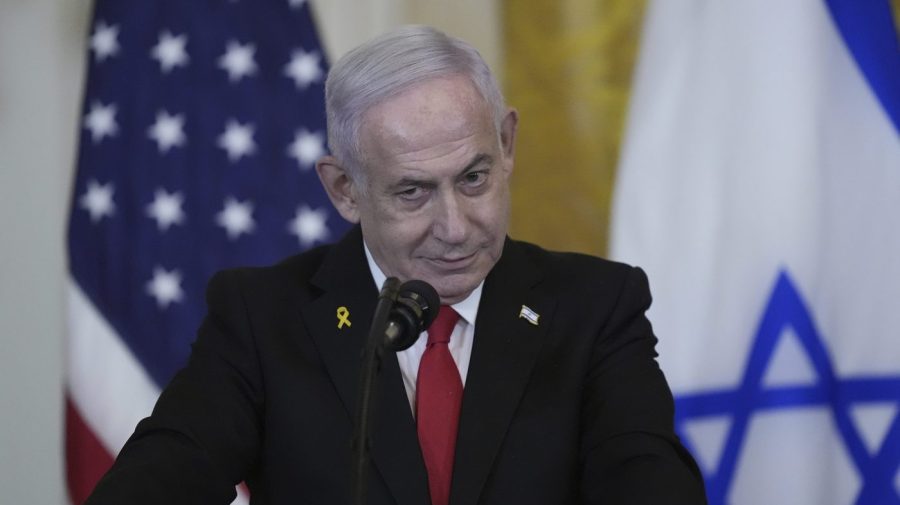
Israeli Prime Minister Benjamin Netanyahu looked like the cat that swallowed the canary as he listened to President Donald Trump lay out his vision for Gaza’s future.
The plan would push the 1.9 million Gazans out of their homes. It would resettle them in Jordan, or Egypt or some other place, wherever they might be taken in. It would involve sending in American troops to help stabilize the Strip and would place Gaza under American control. It would clear all the buildings that were destroyed in Israel’s war with Hamas and level those that are still standing. It would redevelop Gaza into a world-class resort.
All of this was music to Netanyahu’s ears, and even more so to the extremist and racist right-wingers whose support keeps the prime minister’s government in power. Yet to paraphrase the great German strategist Field Marshal Helmuth von Moltke the Elder’s observation about war, “No plan survives contact with reality.”
To begin with, removing Gaza’s nearly 2 million residents would be a massive undertaking. Most, if not all, would likely resist. In any event, no country is likely willing to take in any more Palestinians than those who already reside within its borders.
Jordan and Egypt, the two nations that Trump has mentioned most often as the best locales for resettling Palestinians, have already indicated their refusal to absorb any refugees. Palestinians already constitute a major percentage of Jordan’s population; by some estimates, they actually are the majority in that country. An influx of Palestinians would destabilize the Hashemite regime, and perhaps lead to its overthrow by radical Islamists. Israel could then face yet another hostile enemy on its borders.
Similarly, Egyptian President Abdel Fattah el-Sisi already has to contend with terrorist operations in the Sinai Peninsula. He rightly fears that the arrival of a million Palestinians would provide jihadists with fresh recruits to terrorize the Egyptian population and perhaps destabilize his government as well.
The U.S. could, of course, threaten to cut off aid to both Egypt and Jordan if neither complies with its demands. Amman already is a victim of America’s recent foreign aid cutoff, however, and it is looking elsewhere, most probably to the Gulf states, for resources to backfill tis financial shortfall.
Washington has yet to terminate its military assistance to Egypt, but, should it do so, it would be hurting American arms manufacturers who earn billions from their sales to that country. And, like Jordan’s King Abdullah, Sisi would certainly look to the Gulf States for financial assistance, which he no doubt would receive.
Netanyahu, in responding to Trump’s plan, predicted that the destruction of Hamas, a major presupposition underlying the plan, would “usher in the peace with Saudi Arabia and with others.” He further asserted that “peace between Israel and Saudi Arabia is not only feasible; it’s going to happen.” And Trump weighed in by claiming that Riyadh was not demanding a Palestinian state as a precondition for normalization with Israel.
Riyadh almost immediately indicated that its stance on the creation of a Palestinian state has not changed. Referring to several statements by Crown Prince Mohammed bin Salman, the Saudi ministry pointed out that “the Crown Prince made it clear that Saudi Arabia will not establish diplomatic relations with Israel unless an independent Palestinian state is established with East Jerusalem as its capital.”
Netanyahu clearly appears to have overlooked the plan’s second- and third-order consequences. What he perceives as a resolution of the danger from Gaza could actually both increase and intensify the threats Israel would face.
Palestinians in Gaza could turn once again to Hamas to lead the resistance to the plan to eject them from their homes. Hamas would resume attacking Israel with rockets and missiles, while engaging any incoming American troops in exactly the sort of combat that Trump has indicated he wishes to avoid.
At the same time, the West Bank Palestinians would almost certainly ignite a new intifada, forcing Israel to battle the Palestinians on two fronts. In addition, the new Syrian government, perhaps with an influx of arms supplies from its newfound friends in Ankara, could well launch an attack of its own, seeking to retake the territory that it lost to Israel as the Assad regime collapsed. And the Houthis would resume their missile attacks on Israeli targets.
Israel would likely once again become an international pariah. Regardless of American vetoes in the U.N. Security Council, many states, including the European Union, could impose an economic boycott on Jerusalem. Investment form anywhere other than the U.S. could dry up. The Israeli economy would be seriously damaged. The Abraham Accords would be unlikely to survive. And Egypt and Jordan might rupture their own long-standing peace treaties with the Jewish State.
Israel’s prime minister argues that Trump’s plan “could change history.” It may well do so, but not in the way Netanyahu anticipates. He should be careful for what he wishes for.
Dov S. Zakheim is a senior adviser at the Center for Strategic and International Studies and vice chairman of the board for the Foreign Policy Research Institute. He was undersecretary of Defense (comptroller) and chief financial officer for the Department of Defense from 2001 to 2004 and a deputy undersecretary of Defense from 1985 to 1987.











